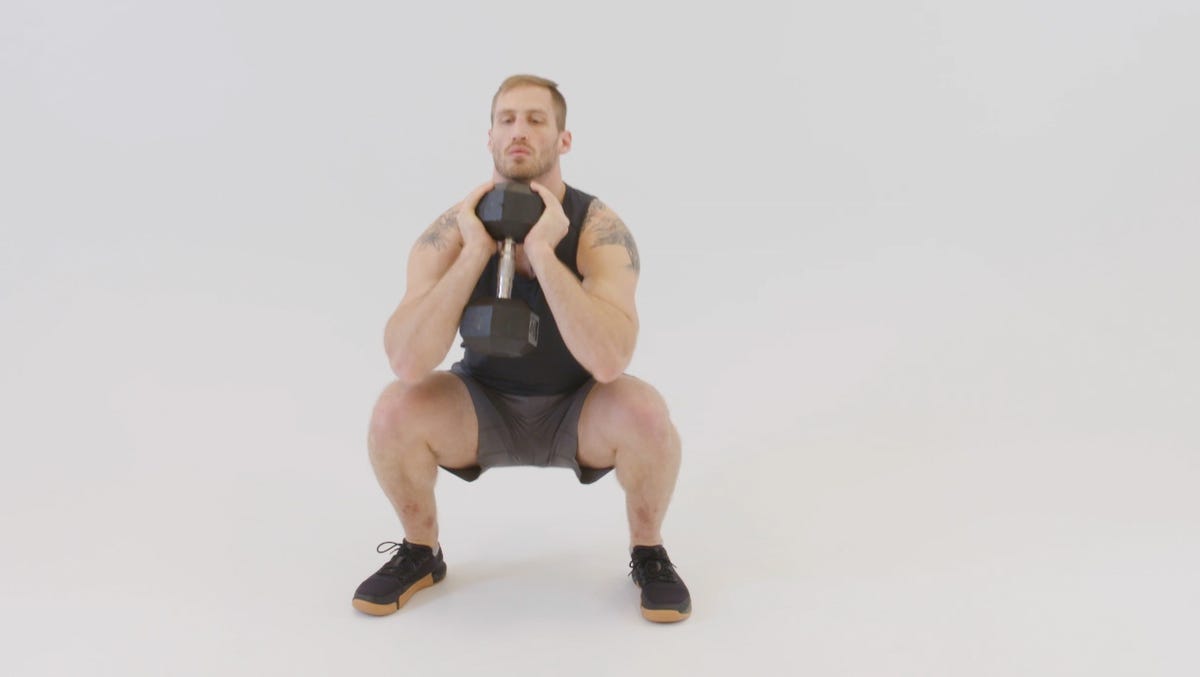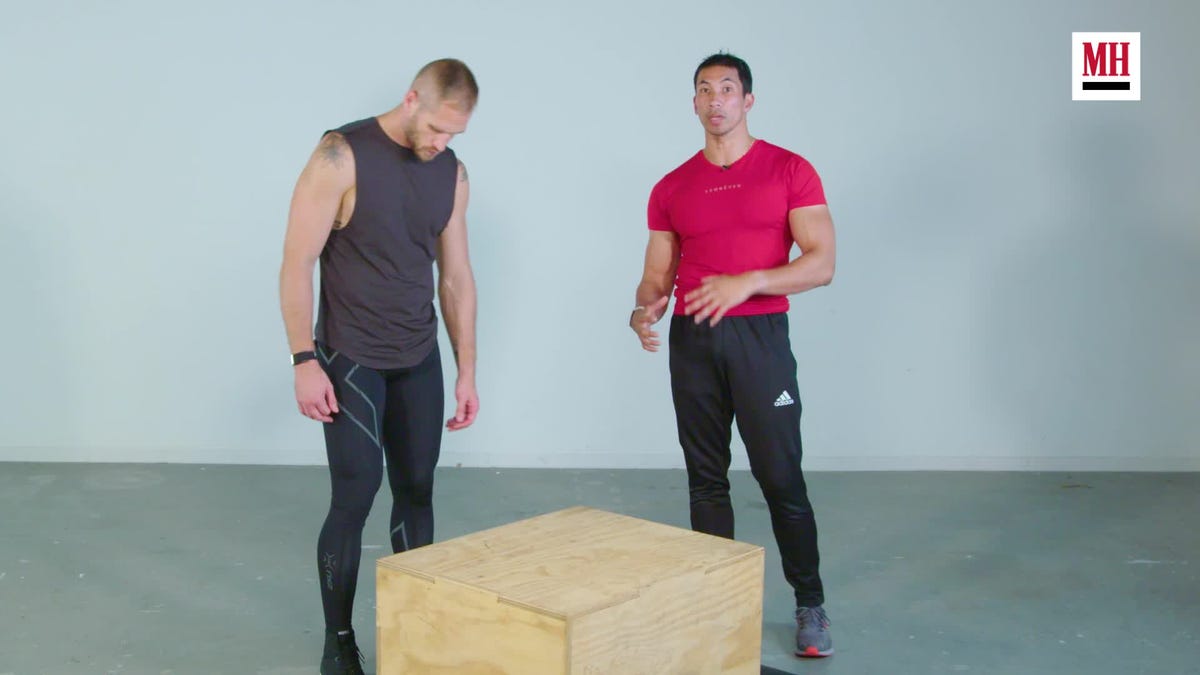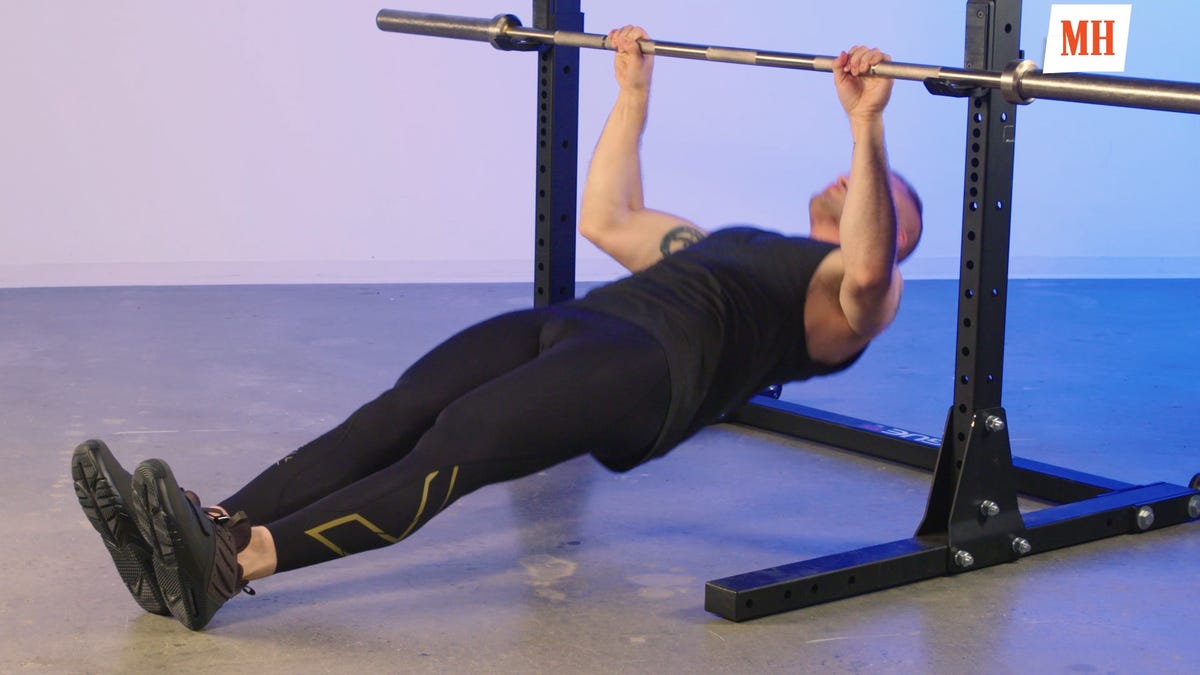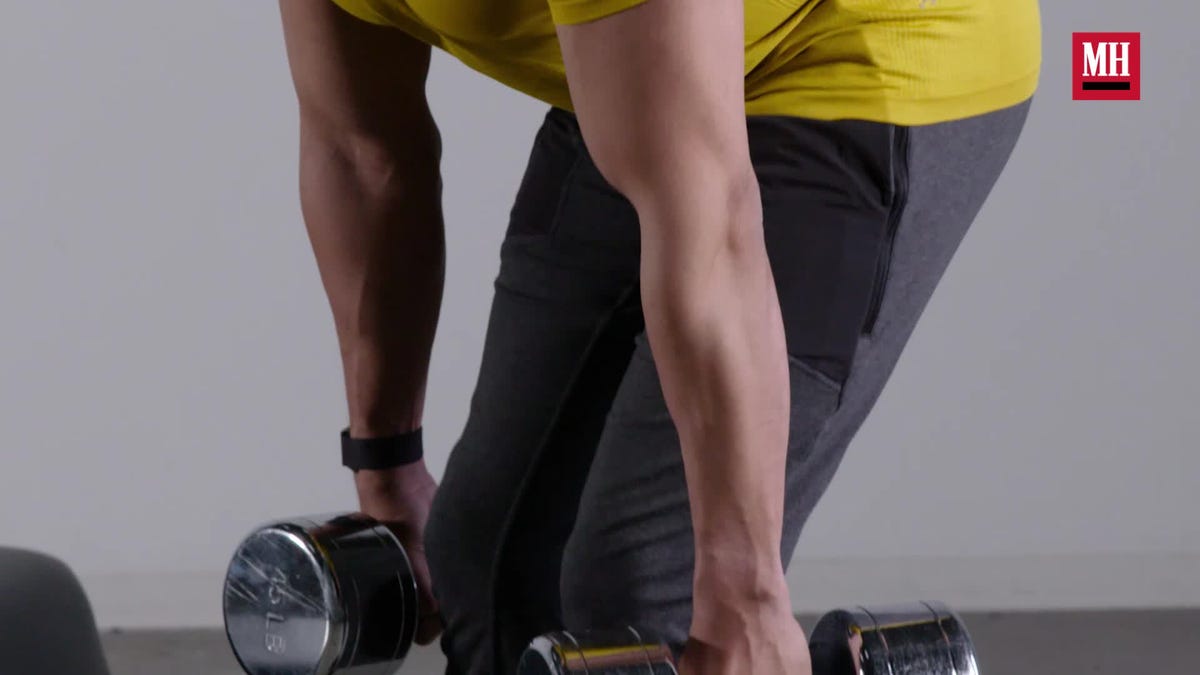LIFE CAN GET in the way of your goals, particularly when it comes to fitness. Kids need raising, work gets busy, and all of a sudden, you realize you don’t remember the last time you saw the inside of a gym. The struggle is real—and when you come to this type of crossroads, you’re stuck with a difficult question: How can you get back into working out?
This quandary can be especially frustrating for those of us who have fallen off the workout wagon. You’re not exactly a beginner; you knew your way around a gym back in the day. It’s just been a little since you’ve pushed any weights other than a stroller or shopping cart, or gone on a run beyond chasing down an errant toddler. The good news is you likely already know the basics. Now, it’s all about putting those building blocks back together.
If you’re not sure how to restart your fitness journey, we asked fitness expert Mathew Forzaglia, C.F.S.C., about his top tips on getting back into shape.
How Can I Get Back Into Working Out?
Obviously, the first step to getting back into working out is by actually going. Make a commitment to get back in the gym by setting an achievable goal, like hitting three workouts per week. Make sure that you don’t push too hard, too soon though. A key mistake many make when getting back into fitness for the first time in a while is doing more then they’re capable of before building back up. That can be a tough pill to swallow—but, the truth is, if you haven’t trained in a long time, you likely won’t lift as much as you did before.
“Don’t bite off more then you can chew,” says Forzaglia. “[For] load, don’t even look at anything above 70 to 75 percent of your max effort.”
The last thing you want to do is finally get into the gym for the first time in a while, go too hard, get injured, and not be allowed to go back. Take your time getting into the swing of things. You will be able to get back to that one rep max number you hit three years ago—but you have to put your ego aside for now, and build your way back up to it.
If you struggle to figure out what those effort percentages mean for you in real life, think instead about finding a weight that you can comfortably control for 10 to 12 reps, Forzaglia says. This range will provide you a solid foundation of strength.
Pick four to five exercises to which you can apply this formula, selecting one from each of the main movement patterns: squat (goblet squat), press (pushup), hinge (deadlift), and pull (cable row). Do about three sets of those 10 to 12 reps, and do that workout about three times per week. That will set a solid foundation for you to then build off of once you feel like you’re ready.
Take a similar tactic as you ease back into cardio exercise, too. Hopping straight into a HIIT workout won’t be great for your body, so consider less-intense options for interval training. Even if you used to run for multiple miles in one go several times a week, Forzaglia advises starting with shorter distances (one to three miles max) and build up once you feel capable.
The amount of time it will take you to get back to where you were before will vary. If you’ve only been out of the gym for a month or so, you might bounce back faster than someone who’s been out of it for several years. The key is to stay consistent.
6 Exercises to Ease Back Into Working Out
Now that you know the tactics, all you need is the tools. These six exercises are Forzaglia’s go-to moves for priming your muscles after taking some time off from the gym. You’ll squat, lunge, push, pull, and hinge—all essential components of a solid training plan. Add them to your sessions and keep the load at a manageable level until you feel comfortable progressing.
Goblet Squat
How to Do It:
- Stand with your feet just wider than shoulder-width apart. Turn your toes out slightly to start; as you progress, find the most comfortable stance for your own mobility.
- Hold a kettlebell or dumbbell with both at chest-height, elbows high. Crate mid-back tension to pull your shoulders back. Brace your core to keep your balance; you’ll need to maintain this tension throughout the movement.
- Push your butt back, then bend your knees to descend down into the squat. Lower down to a depth just below parallel (i.e., your thighs are parallel to the floor) or to the most comfortable position given your personal mobility.
- Press your knees apart to prevent them from caving in. Maintain tension in your core and shoulders; don’t rest your elbows on your knees.
- Squeeze your glutes to stand back up.
Sets and Reps: Aim for 3 sets of 10 to 12 reps
Lateral Lunge
How to Do It:
- Stand with your feet shoulder-width apart. Squeeze your glutes, and, and shoulder blades, keeping your gaze neutral at a point straight ahead of you.
- You can perform lunges with only your bodyweight, or use a wide range of implements like dumbbells, kettlebells, or barbells held in a number of positions. For simplicity’s sake, start by holding a pair of dumbbells, one in each hand at hip-level.
- Step forward and slightly out with one leg, landing with your heel first. Work to avoid slamming your knee into the ground. Keep your chest in an upright position, bending your knees to form right angles with both of your legs. Turn on your forward glute muscle to help protect your knees.
- Drive off the ground with your front heel to step back into the starting position. Keep your torso in a solid upright position by squeezing your core to stay balanced.
Sets and Reps: Aim for 3 sets of 10 to 12 reps
Step Up
How to Do It:
- Hold the kettlebells or dumbbells by your sides, suitcase style. Place your foot up onto the box.
- Shift onto your toes on the back leg, this will help you not use the push off of the back leg and focus the effort in your front foot.
- Squeeze your glute and of your front leg. Drive through the foot, and fully extend your hip and knee. Pause for a second at the top.
- Take your time to slowly lower back down.
Sets and Reps: Aim for 3 sets of 10 to 12 reps
Inverted Row
How to Do It:
- Start with a bar placed in a rack or Smith machine, lying on your back underneath. Adjust the bar to a height just above your reach with your arms extended.
- Reach up and grab the bar with an overhand grip, with your hands just wider than shoulder-width apart. Put your feet together, forming a straight line from your feet to your shoulders. Pull yourself up off the floor, squeezing your shoulder blades, abs, and glutes to create full body tension.
- Pull yourself up, imagining that you’re pulling the bar down to your chest. Pause for a count at the top of the movement.
- Lower yourself back down under control.
Sets and Reps: Aim for 3 sets of 10 to 12 reps
Pushup
How to Do It:
- Start in a high plank position, with your palms flat on the floor, stacked directly below your shoulders.
- Squeeze your shoulders, glutes, and core to create full-body tension. Your spine should form a straight line, with a neutral spine.
- Bend your elbows to descend to the floor, stopping with your chest just above the ground. Your elbows should be at a 45 degree angle relative to the torso.
- Press back up off the floor, raising up to the top position with your elbows fully extended.
Sets and Reps: Aim for 3 sets of 10 to 12 reps
Dumbbell Romanian Deadlift
How to Do It:
- Standing with you feet about shoulder-width apart, grab a pair of dumbbells from a bench or box.
- Keep the dumbbells close to your sides, with your shoulders back, your core tight, and glutes squeezed.
- Begin “pushing” your butt back as far as possible as you begin lowering your torso—as if you’re trying to close a car door. Think about taking two seconds with the lowering phase. The goal is to get to about a 45-degree angle, depending on your personal mobility limits. Don’t forget to keep the dumbbells close to your shins—don’t let them hang too far forward.
- Pause at the bottom, then stand back up, slightly quicker than the lowering phase.
Sets and Reps: Aim for 3 sets of 10 to 12 reps
Read the full article here








